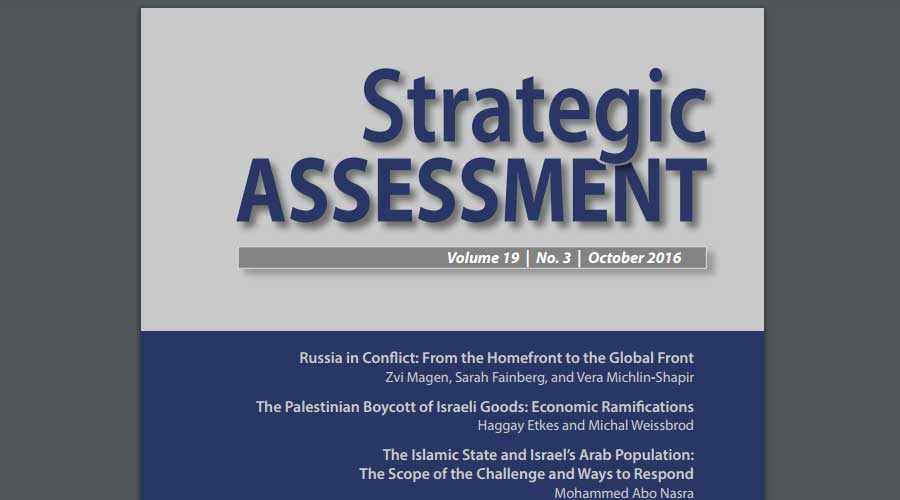Russia in Conflict: From the Homefront to the Global Front
Zvi Magen, Sarah Fainberg, and Vera Michlin-Shapir
Since the start of the Ukrainian crisis, Russia has faced a web of new challenges in both the domestic and international arenas. As a result of the crisis, Russia is experiencing isolation and prolonged political pressure, while at the same time suffering from economic sanctions imposed by the United States and Europe due to its involvement in Ukraine. In order to escape the political isolation and save its faltering economy, Russia has initiated a series of international moves, especially in the Middle East. Through the creation of crises, Moscow seeks to end the economic sanctions and reverse the balance of Russian-Western relations, both in the Middle East and Eastern Europe. Yet despite its efforts to expand the crises, Russia has still not succeeded in easing the Western political and economic pressure leveled against it.
The Palestinian Boycott of Israeli Goods: Economic Ramifications
Haggay Etkes and Michal Weissbrod
In recent years, Palestinian organizations, as well as the Palestinian government, have used the boycott of Israel goods, especially Israeli foodstuffs, to put pressure on Israel. This was done, for example, during Operation Protective Edge in the summer of 2014; in early 2015, when Israel froze the transfer of tax revenues to the Palestinian Authority; and in the spring of 2016, when Israel prevented the sale of Palestinian food products in Israel. Despite the threats, an analysis of the data shows that the economic effect of such boycotts is marginal: while since the summer of 2014 the share of Palestinian imports from Israel dropped from 72 to 58 percent, the decrease was mostly the result of the global drop in fuel prices. Although there is evidence of a long term decline in Israeli food industry sales to the PA, the economic ramifications of Palestinian boycotts of the Israeli food industry are estimated to be less than NIS 200 million, representing merely half a percentage point of the revenue of that industry.









